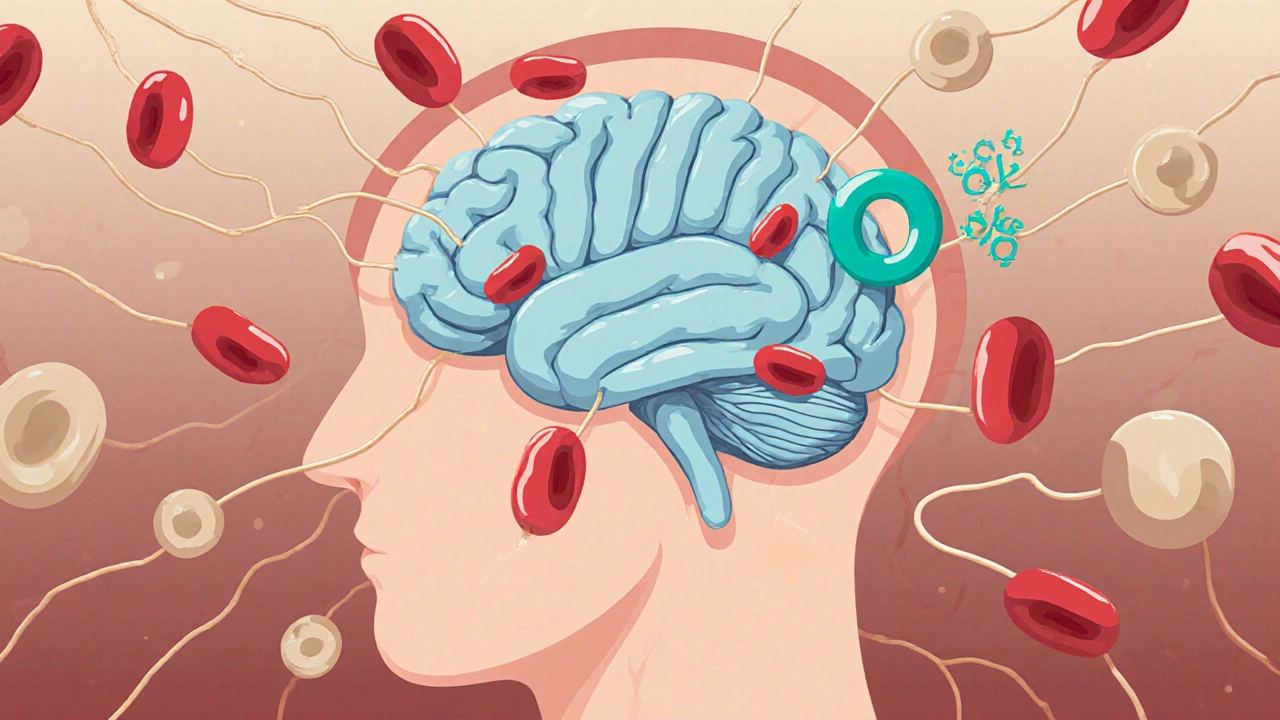
Nutritional Anemia and Brain Power: How Deficiencies Impact Cognitive Function
Explore how iron, B12, and folate deficiencies cause anemia and impact brain health, with symptoms, science, and practical steps to protect cognition.
When working with Iron Deficiency, a state where the body doesn't have enough usable iron to produce adequate hemoglobin. Also known as iron deficiency anemia, it can quietly lower energy, impair concentration, and weaken immunity. Iron deficiency often slips under the radar because early signs mimic everyday fatigue. The condition is essentially a form of Anemia, specifically when low iron is the primary driver of reduced red blood cell count. Knowing that anemia covers many causes—vitamin B12 lack, chronic disease, or iron shortage—helps you target the right remedy. If you know whether the drop in hemoglobin stems from iron loss, you can avoid generic treatments that miss the root problem.
Most people think iron comes only from meat, but dietary iron, found in leafy greens, beans, and fortified grains, supplies about half of daily needs. Heme iron from animal sources is absorbed more easily, while non‑heme iron needs vitamin C or certain acids to boost uptake. When meals lack these boosters, the body stores less iron, and ferritin, the protein that holds iron in cells, drops. Low ferritin is the most reliable lab signal that you’re running short before anemia even appears. Common culprits that deplete iron stores include chronic blood loss from heavy periods, gastrointestinal bleeding, pregnancy, and high‑intensity training that ramps up red blood cell turnover. Even picky eating or vegetarian diets can tip the balance if they miss iron‑rich foods or the enhancers that make absorption efficient.
Fixing the shortage starts with a plan that matches the cause. Iron supplement formulas come in ferrous sulfate, gluconate, or bisglycinate forms; the latter tends to cause fewer stomach issues. A typical adult needs 8–18 mg of elemental iron per day, but doctors may prescribe higher doses for severe cases, sometimes split into two smaller servings to improve tolerance. For people who can’t handle pills, liquid drops or chewable tablets provide an alternative, and intravenous iron is reserved for those who can’t absorb oral doses due to gut disorders. Pairing supplements with vitamin C‑rich foods—like orange juice or bell peppers—can boost absorption by up to 50 %. Meanwhile, adjusting the diet to include more iron‑dense foods and cutting back on coffee or calcium supplements around meal times helps keep the iron pipeline running smooth.
Below you’ll find a curated set of articles that dig deeper into medication choices, supplement comparisons, and practical tips for managing low iron levels. Whether you’re looking for the best over‑the‑counter iron pills, need to understand lab results, or want advice on diet tweaks, the collection ahead gives you clear, actionable information to get your iron back on track.

Explore how iron, B12, and folate deficiencies cause anemia and impact brain health, with symptoms, science, and practical steps to protect cognition.